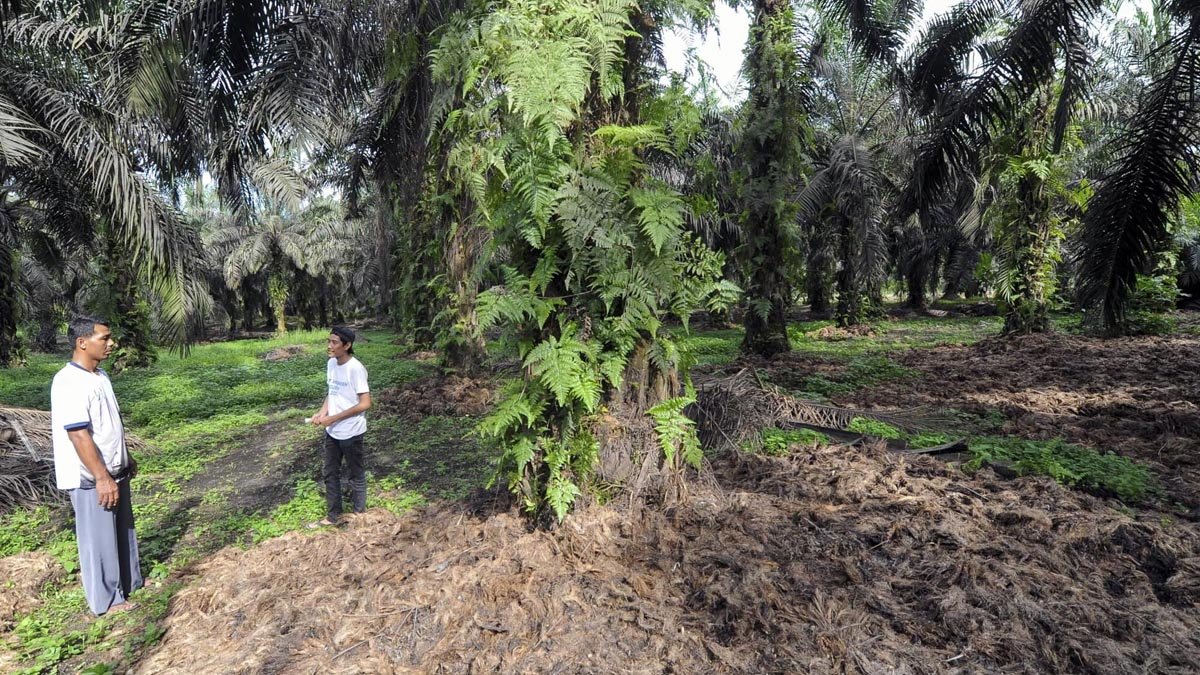PALMOILMAGAZINE, KUALA LUMPUR — During the Roundtable on Sustainable Palm Oil (RT2025) and the 22nd General Assembly of RSPO Members (GA22) held in Kuala Lumpur, Malaysia, on November 3–5, 2025, the voices of independent palm oil smallholders once again took center stage. Through the Indonesian Sustainable Palm Oil Farmers Forum (FORTASBI), smallholders underscored the importance of tangible support for sustainability—particularly through the purchase of RSPO certification credits.
For independent smallholders, sustainability credit incentives are vital to maintaining their commitment to RSPO’s principles and criteria.
“Without continued incentives, it is difficult for smallholders to sustain sustainable practices amid market pressures and certification costs,” said a FORTASBI representative, as quoted by Palmoilmagazine.com on Friday (November 7, 2025).
They emphasized that the RSPO credit scheme is not merely a reward for environmentally friendly practices but also a powerful instrument to build motivation and strengthen smallholders’ roles within the global supply chain. With adequate incentives, sustainably produced palm oil can further dominate international markets and enhance Indonesia’s positive reputation in the sector.
Also Read:
FORTASBI also highlighted the need for concrete actions from all stakeholders—from buyers and downstream industries to certification bodies—to improve market strategies and encourage greater buyer interest in purchasing RSPO credits generated by independent smallholders.
“So far, the purchase of credits by buyers has delivered real impacts, both environmentally and socially,” said the forum’s representative.
The incentives have helped fund various initiatives, including the construction of farm roads, management of high conservation value areas, river protection, biodiversity conservation efforts such as orangutan adoption, and the implementation of regenerative agriculture.
Socially, the impact has also been tangible for local communities around smallholder plantations. Proceeds from RSPO credit sales have supported education programs—ranging from scholarships and learning materials to teacher assistance and classroom improvements.
FORTASBI reaffirmed that institutional and financial support remains an urgent need for Indonesia’s independent smallholders. Without consistent assistance, the implementation of RSPO principles and criteria could stall, especially among smallholder groups in remote areas with limited access.
“The efforts of independent smallholders to uphold sustainability must be part of RSPO’s global communication. Buyers need to see firsthand the positive impacts of the credits they purchase,” the forum stressed.
RT2025 served as a strategic platform for farmers, industry players, and policymakers to strengthen cross-sector collaboration. It is hoped that sustainability initiatives rooted in grassroots movements—like those led by FORTASBI and independent smallholders—will continue to receive support, enabling Indonesia’s palm oil to remain competitive in an increasingly transparent and sustainability-driven global market. (P2)
